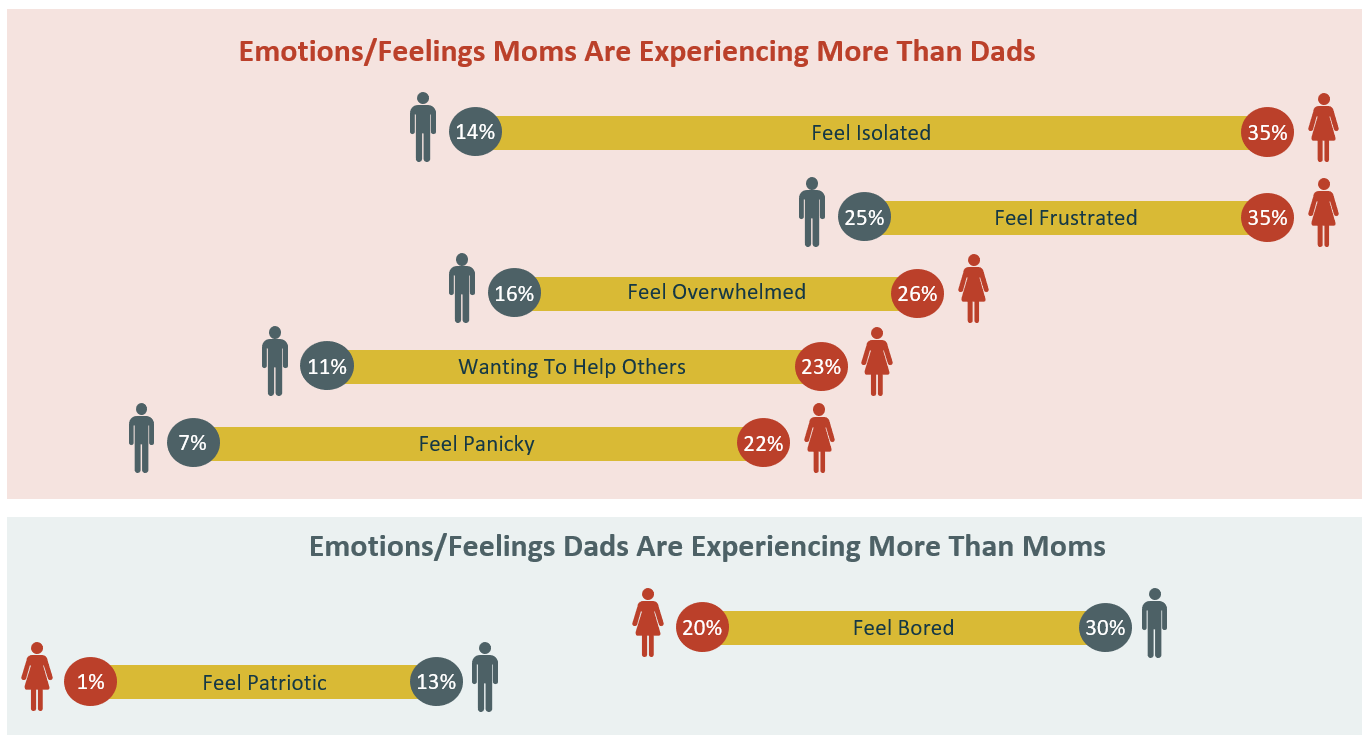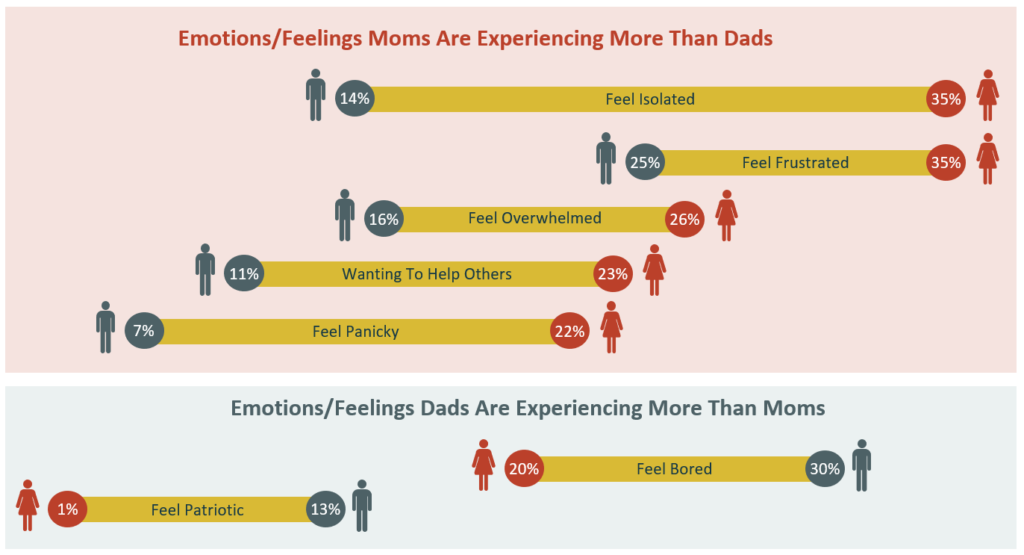featured insight
featured insight

American COVID-19 Sentiment Research: No, How Are You Really?
A recent article in The Atlantic was entitled, “What to Ask Instead of ‘How Are You?’ During a Pandemic.” Oops! We did just that. Meeting Street Insights and New Bridge Strategy asked 1,000 voters throughout the country to essentially tell us how they are doing emotionally during these odd times.
The most common emotions and feelings U.S. voters say they have experienced as a result of the Coronavirus outbreak tend to be negative. Americans are most likely to report feeling:
| Anxious | 41% |
| Frustrated | 33% |
| Isolated | 31% |
| Sad | 27% |
| Scared | 26% |
| Uncomfortable | 25% |
| Bored | 23% |
| Overwhelmed | 21% |
| Irritated | 21%* |
(*Respondents could point to multiple emotions, so totals exceed 100%)
The one positive emotion that broke into the top ten emotions being experienced is “wanting to help others,” with more than one-in-five (22%) saying they had experienced this emotion. “Hopeful” and “prepared” were not terribly far behind (20% and 17%, respectively), although fewer than one-in-ten (9%) noted feeling patriotic and a mere 3% have felt entertained. (Really? Even with Tiger King on Netflix?!).
In some ways, we really do seem to be “in this together,” as we are experiencing many of the same emotions, irrespective of geography, socio-economic status or relationship status. Where one lives had little to do with the dominant emotions being experienced. Voters living in large urban areas are only slightly more likely to report feeling anxious than those in rural areas (45% and 41%, respectively). Similarly, single respondents are only slightly more likely than those who are married to report feeling “isolated” (33% and 30%). Differences in income, age or ethnic background did not predict greater anxiety, discomfort, or most other emotions, either.
However, emotionally, men and women are experiencing this pandemic quite differently, with women more apt to indicate feeling anxious (43%, compared to 32% of men), scared (32%, compares to 19% of men) and overwhelmed (28%, compared to 13% of men). One might think that this gender difference could be due to children in the home and therefore would be less pronounced among parents, but actually the differences are even more stark. Moms and dads are experiencing this pandemic and the ensuing disruptions very differently as highlighted in the following graph:

Despite the differences, most Americans say they have had some sort of emotional response to the COVID-19 outbreak. Overall, seven-in-ten American voters (70%) say that the coronavirus outbreak has in fact affected them emotionally, with nearly one-in-four saying it has affected them “a great deal” (23%).

Younger voters are most likely to say that COVID-19 has affected them a great deal with Gen Z (28%) and Millennials (32%) about ten points more likely to say they have been greatly affected than older Americans. Those living in large urban areas (32%) are also more apt to say the pandemic has affected their emotions a great deal. Not surprisingly, the 17% of American voters who know someone who has had COVID-19 are most apt to say they have been dramatically affected emotionally (41% a great deal).
With so many of us experiencing a wide range of emotions, asking how someone is may be less of a faux pas than an opportunity to connect in a way that we might not have prior to the pandemic. As the Atlantic author noted, “one of the kindest gestures we can extend to others in a time like this is to make clear that they don’t have to pretend they’re fine.”
This data comes from a Meeting Street Insights national online survey of 1,000 registered voters conducted March 29 – April 1, 2020.

